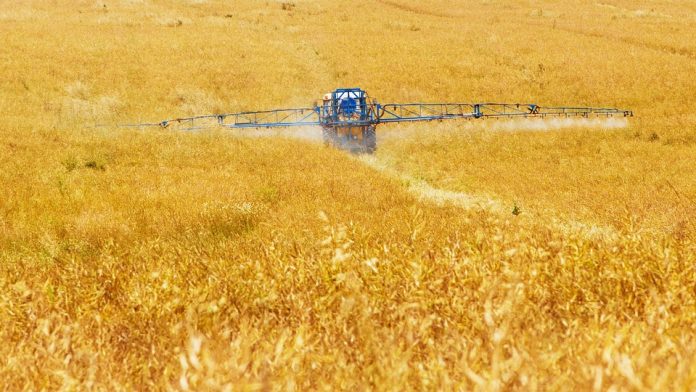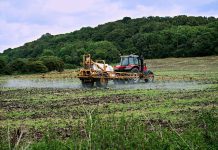As the global food crisis continues to threaten food security, the role of pesticides in agricultural productivity has become a subject of controversy. This article aims to explore the connection between pesticides and the global food crisis, examining the double-edged sword of their impact on agricultural productivity and the potential health and environmental consequences.
By considering sustainable alternatives and the need for effective policy and regulation, the article seeks to shed light on the complex interplay between pesticides, food security, and public health.
The Global Food Crisis: Understanding the Context
Within the context of the global food crisis, it is crucial to understand the underlying factors that contribute to its severity. The global food crisis is not a result of a single cause but rather a combination of various factors.
One of the underlying causes of the crisis is the economic implications of food production and distribution. Rising costs of inputs, such as fertilizers and fuel, have made it increasingly challenging for farmers to produce food at affordable prices. Additionally, the unequal distribution of wealth and resources exacerbates the problem, as many people in impoverished regions lack access to nutritious food. These economic factors play a significant role in the severity of the global food crisis.
Understanding these underlying causes is essential as it sets the stage for the subsequent section discussing the relationship between pesticides and agricultural productivity.
Pesticides and Agricultural Productivity: A Double-Edged Sword
Numerous studies have shown that pesticides can both enhance and hinder agricultural productivity, making them a double-edged sword in the pursuit of global food security. While pesticides can effectively protect crops from pests and diseases, they can also have negative effects on agricultural yield.
Here are three ways in which pesticides impact agricultural productivity:
- Increased crop protection: Pesticides play a crucial role in safeguarding crops from pests and diseases, preventing significant yield losses and ensuring a stable food supply.
- Resistance development: Continuous pesticide use can lead to the emergence of resistant pests and weeds, reducing the effectiveness of these chemicals and posing challenges for crop protection strategies.
- Ecological imbalance: Pesticides not only target pests but also affect beneficial insects and organisms that contribute to natural pest control. This disruption in the ecosystem can have long-term consequences on agricultural productivity.
Understanding the complex relationship between pesticides and agricultural productivity is essential for sustainable farming practices and global food security. However, it is also crucial to examine the potential health concerns associated with pesticide use, as they directly impact human well-being.
Health Concerns: Examining the Impact on Human Well-being
The potential health risks associated with pesticide use raise concerns about their impact on human well-being. Pesticides are widely used in agriculture to protect crops from pests and diseases, but their use has been linked to various human health risks. Pesticide exposure can occur through various routes, including inhalation, ingestion, and skin contact.
Exposure to pesticides has been associated with a range of health issues, including acute poisoning, respiratory problems, cancer, neurodevelopmental disorders, and reproductive problems. These risks are particularly concerning for agricultural workers who handle pesticides directly, as well as for communities living near agricultural areas where pesticide spraying is common.
To better understand the potential impact of pesticide exposure on human health, it is important to examine the available scientific evidence and conduct further research. This will help inform policies and practices that aim to minimize human health risks while still ensuring the effective control of pests and diseases in agriculture.
| Health Concerns | Impact on Human Well-being |
|---|---|
| Acute poisoning | Immediate health effects, including nausea, vomiting, and dizziness |
| Respiratory problems | Long-term lung damage and increased risk of respiratory diseases |
| Cancer | Increased risk of various types of cancer, including lung, breast, and prostate cancer |
| Neurodevelopmental disorders | Impaired cognitive development in children and increased risk of neurodegenerative diseases in adults |
Environmental Consequences: Assessing the Effects on Ecosystems
An extensive body of research has revealed significant ecological ramifications resulting from the use of pesticides in agricultural practices. The ecological impact of pesticides extends beyond the intended target pests and can have far-reaching consequences on ecosystems. Here are three alarming findings that highlight the severity of the issue:
- Decreased biodiversity: Pesticides have been shown to have detrimental effects on biodiversity by harming non-target organisms such as bees, birds, and aquatic life. This loss of biodiversity disrupts the delicate balance of ecosystems and can lead to cascading effects throughout the food chain.
- Soil degradation: Pesticides can accumulate in the soil and cause long-term damage to its fertility and structure. This degradation hampers the ability of soil to support plant growth and can lead to decreased agricultural productivity in the long run.
- Water contamination: Pesticides can leach into water bodies, contaminating both surface water and groundwater. This contamination poses a threat to aquatic life and can also seep into drinking water sources, potentially endangering human health.
Assessing the biodiversity and ecological impact of pesticides is crucial for understanding the full extent of their environmental consequences.
Sustainable Alternatives: Exploring Non-chemical Approaches
To address the environmental and health concerns associated with pesticide use, viable and sustainable alternatives, such as non-chemical approaches, can be explored. One such approach is organic farming, which promotes the use of natural methods to control pests and diseases. Organic farmers rely on techniques such as crop rotation, companion planting, and biological controls to maintain a healthy and balanced ecosystem. By avoiding synthetic pesticides and fertilizers, organic farming minimizes the negative impact on the environment and reduces the risk of pesticide residues in food.
Another effective approach is integrated pest management (IPM), which combines various pest control strategies to prevent and manage pest infestations. IPM involves monitoring and identifying pests, using biological controls, and implementing cultural practices to reduce pest populations. Transitioning to these non-chemical alternatives can contribute to a more sustainable agricultural system that protects both the environment and public health.
In light of these non-chemical approaches, it is essential to establish policies and regulations that strike a balance between ensuring food security and protecting public health.
Policy and Regulation: Balancing Food Security and Public Health
In order to address the complex issues surrounding pesticide use and its impact on food security and public health, it is crucial to establish comprehensive policies and regulations that carefully balance the need for agricultural productivity with the protection of human well-being. Balancing these priorities requires strategic government intervention to ensure that the use of pesticides is both efficient and safe. Here are three key considerations:
- Stricter regulations: Implementing rigorous guidelines and standards for pesticide use can help minimize health risks and environmental damage. This includes setting maximum residue limits, promoting integrated pest management practices, and conducting regular monitoring and enforcement.
- Support for sustainable farming practices: Encouraging the adoption of sustainable alternatives, such as organic farming and agroecology, can reduce reliance on pesticides while maintaining productivity. This can be achieved through providing financial incentives, technical assistance, and education to farmers.
- Public awareness and education: Raising awareness about the potential risks associated with pesticide use and promoting safe handling practices is essential. Government intervention should focus on educating the public, empowering consumers to make informed choices, and fostering a culture of responsible pesticide management.
Key Takeaways
- Rising costs of inputs, such as fertilizers and fuel, make it challenging for farmers to produce affordable food.
- Pesticides protect crops from pests and diseases, ensuring a stable food supply.
- Pesticide exposure has been linked to health concerns such as acute poisoning, respiratory problems, cancer, neurodevelopmental disorders, and reproductive problems.
- Pesticides harm non-target organisms, leading to decreased biodiversity and environmental damage.
Conclusion
In conclusion, the use of pesticides in agriculture has both positive and negative implications. While pesticides contribute to increased agricultural productivity, they also pose serious health risks to humans and have adverse effects on ecosystems.
Of course we have not examined the aspect of ‘taste'. IMHO when you taste industrial / chemical system vegetables versus organic / home grown there is no competition. Industrial scale vegetables are just colours / yet tasteless.
It is crucial to explore sustainable alternatives and implement effective policies and regulations to strike a balance between food security and public health. By considering non-chemical approaches and promoting responsible pesticide use, we can address the global food crisis while minimizing its controversial connection to pesticides.
Please see our supporting articles:
From Farm to Fork: How Pesticide Residues Impact Our Food Supply
Pesticides and Our Food: Are We Putting Ourselves at Risk?
Childhood Development at Risk From Pesticides



